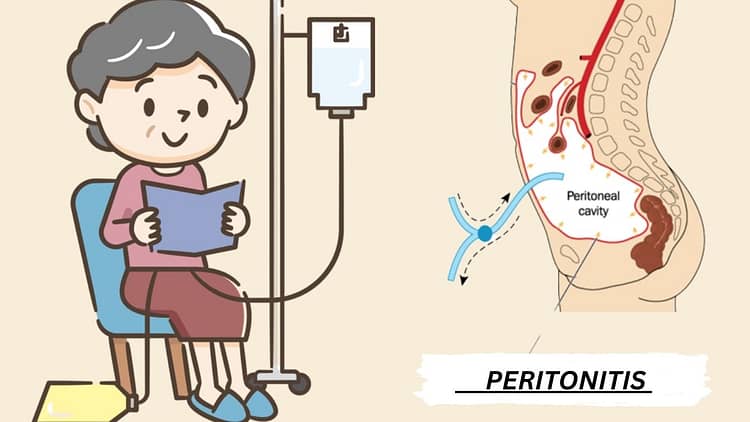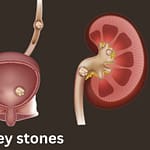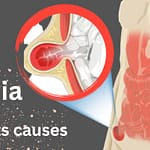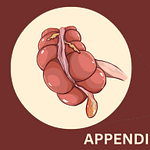
Overview of the Peritonitis
The term peritonitis is used to describe a serious condition affecting the abdomen that
is caused by bacteria. It refers to the body region between the chest and the pelvis.
There are several causes of peritonitis, but one of the most common is inflammation
of a thin layer of tissue inside the abdomen. In the peritoneum, there is a layer of tissues
called the peritoneum. In general, peritonitis is caused by an infection caused by bacteria
or fungi.
Peritonitis Definition medical Terms
There are several types of mucous membrane inflammation in the stomach, called peritonitis.”
This disease can be acute and chronic. In a healthy state, this membrane secretes a fluid called
serous phloem. This fluid keeps the membrane lubricated but is released in large quantities
when inflamed.
It begins to form, and as the disease progresses, it becomes pus. Generally, it is observed
that this fake is not completely inflamed, but the part of it that is above the kidneys, uterus,
and intestines is inflamed.
What causes peritonitis?
- A hole in the stomach, intestines, gallbladder, uterus, or bladder may cause it
- An infection that occurs during peritoneal dialysis treatment for end-stage renal disease
- A condition in which the abdomen liquid becomes infected due to end-stage liver disease (cirrhosis).
- Symptoms of pelvic inflammatory disease in women
- As a result of surgery (if bacteria are introduced into your stomach during the operation)
How to do peritoneal Cancer symptoms
1- There is nausea and vomiting.
2- The stomach becomes bloated.
3- Feeling thirsty.
4- Constipation, stool stops completely.
5- Breathing becomes fast.
6- Gets a fever.
7- Place inflammation develops.
8- The muscles of the body start getting stiff.
9- The number of white cells in the blood increases.
Peritonitis Blood Test
1- The number of white cells is found to be increased on the C.B.C. blood test.
2- Its level is high when E.S.R. is done.
Note
Remember that the above-met reports will be similar wherever there is inflammation
in the body, and rarely will we hear it at the above level.
How does peritonitis affect my body?
Peritonitis is a condition in which several symptoms can vary based on the type of infection.
In most cases, they include pain in the abdomen and swelling in the area.
You should be aware of complications, however, as they are what you must watch out for.
Because the peritoneum covers a large part of your abdomen and touches a lot of organs
within your abdomen, any infection in your peritoneum can damage all of these organs
within your abdominal cavity. In addition, it can also spread to the bloodstream and,
as a result, become systemic and affect your entire body.
Peritoneal Disease Treatment in Homeopathy
-
Aconite 30
This medicine should be given early in the onset of the disease.
Its symptoms include severe inflammation, high fever, fear of death, panic,
restlessness, doubts, pain to touch, etc.
-
Bella Donna 30
Give this medicine along with Aconite 30 as soon as possible. Very useful.
-
Ferm Fos 12x, Black Peacock 6x, Mag Fos 6x
Dissolve this mixture in warm water and sip it every half hour. Controls the disease
quickly in the early stage but buy all these medicines made in Germany.
-
Evil Onia 30
High fever, increased thirst, increased movement, constipation.
Relief from rest and throbbing pains are its guiding symptoms.
This disease from repeated soon Does not intensify.
-
Merck Year 30
When the stomach is strained to fill the edema’s fluid, all symptoms worsen at night.
The patient asks for cold water. Chills and frequent sweating in fever do not cause
fever or any other symptoms, but on the contrary, increase the pain. It is a special
symptom of this medicine. This medicine works well after Belladonna.
Key Points of Peritonitis
- An infection in the lining of the belly or abdomen is called peritonitis. Peritoneum is the mucous membrane covering the abdomen.
- It’s usually caused by a burst appendix or an infection inside the intestine hole.
- You need to get checked out right away.
- There’s a good chance you’ll be in the hospital. You’ll get IV (intravenous) antibiotics to treat the infection.
- There are a lot of health problems associated with peritonitis. In the absence of In the absence of immediate treatment, it can be fatal.
Conclusion of Peritonitis
Instruct the patient to rest completely. Warm to the point of pain if the patient tolerates it.
Keep a water bottle.
Mix belladonna mother tea with glycerine and massage gently. He was sucking ice in
extreme thirst For and giving food to every country.










